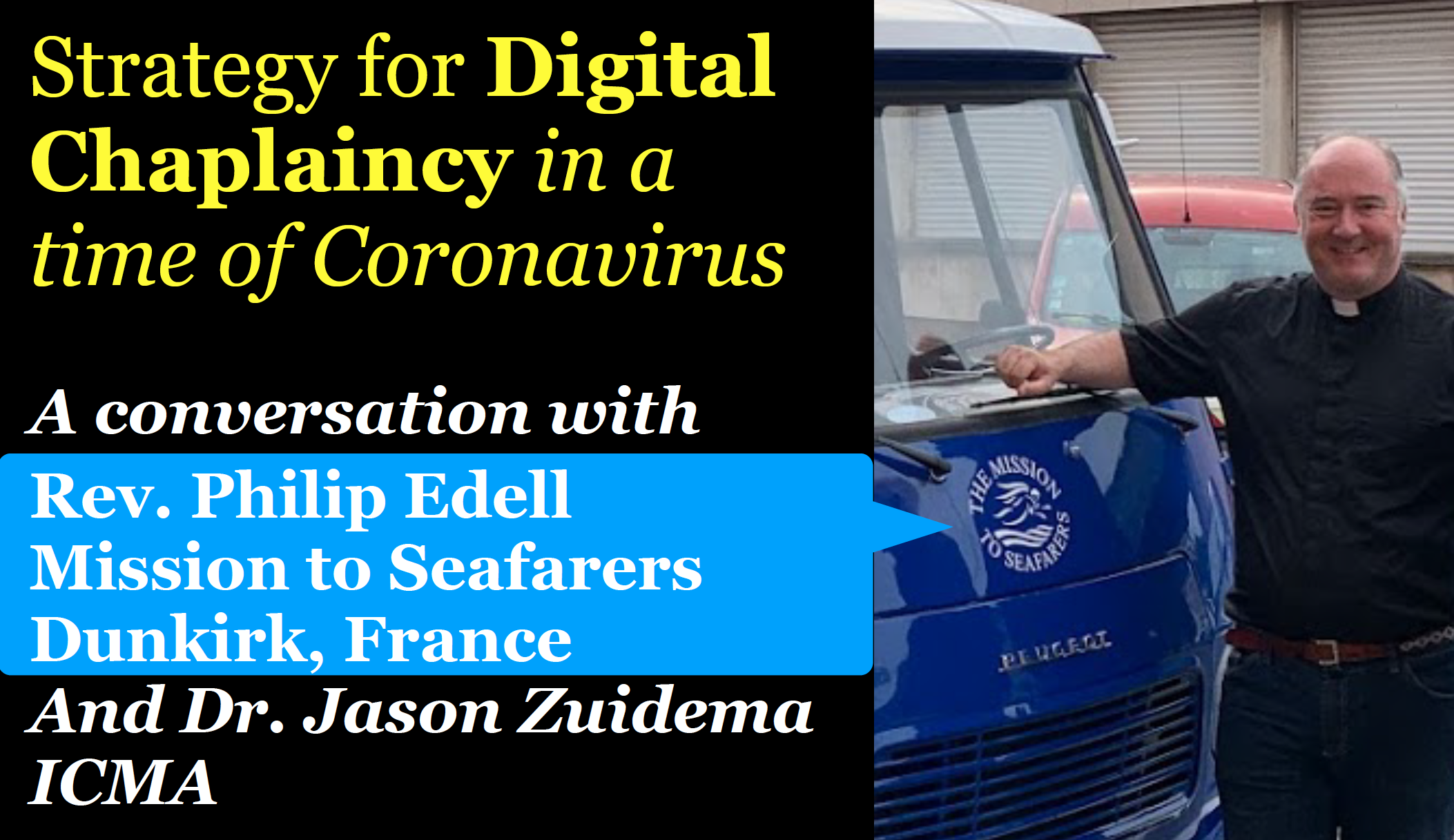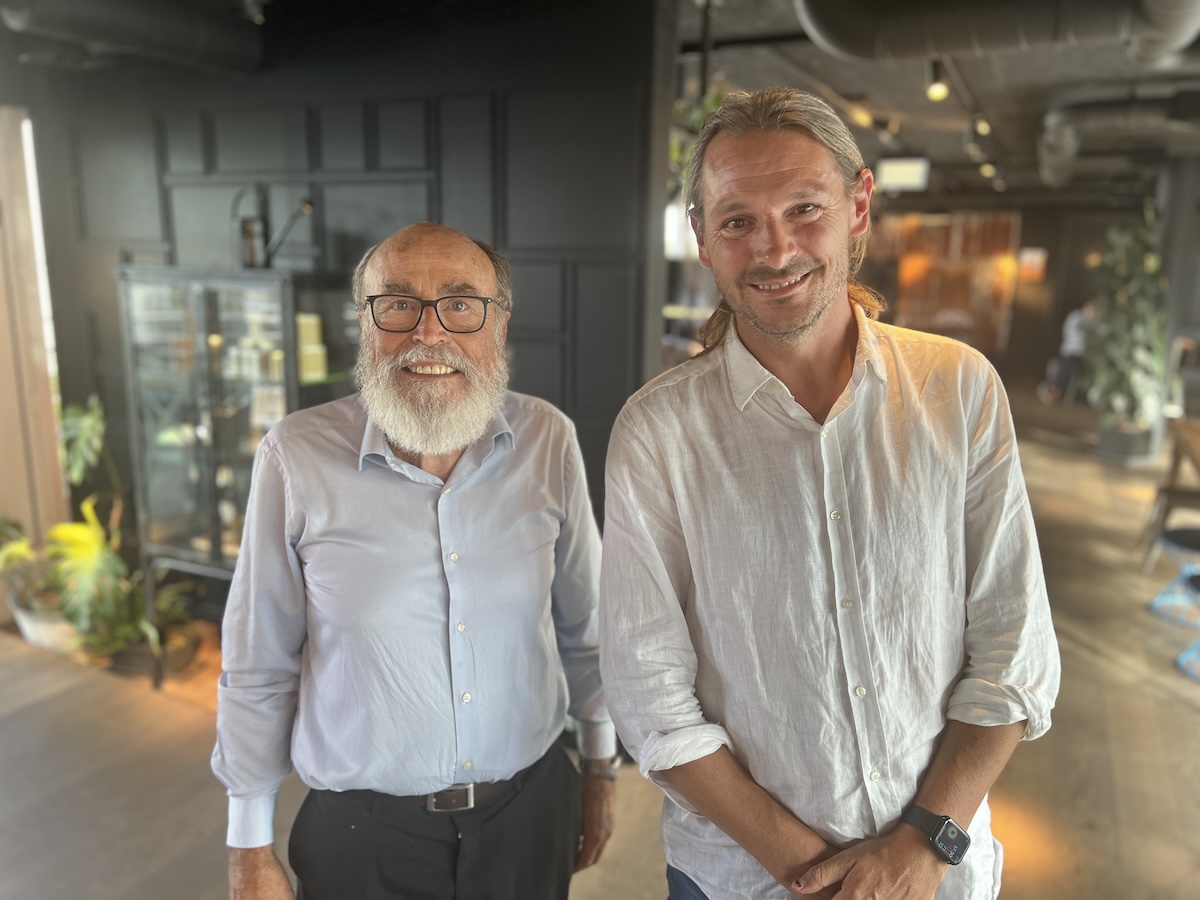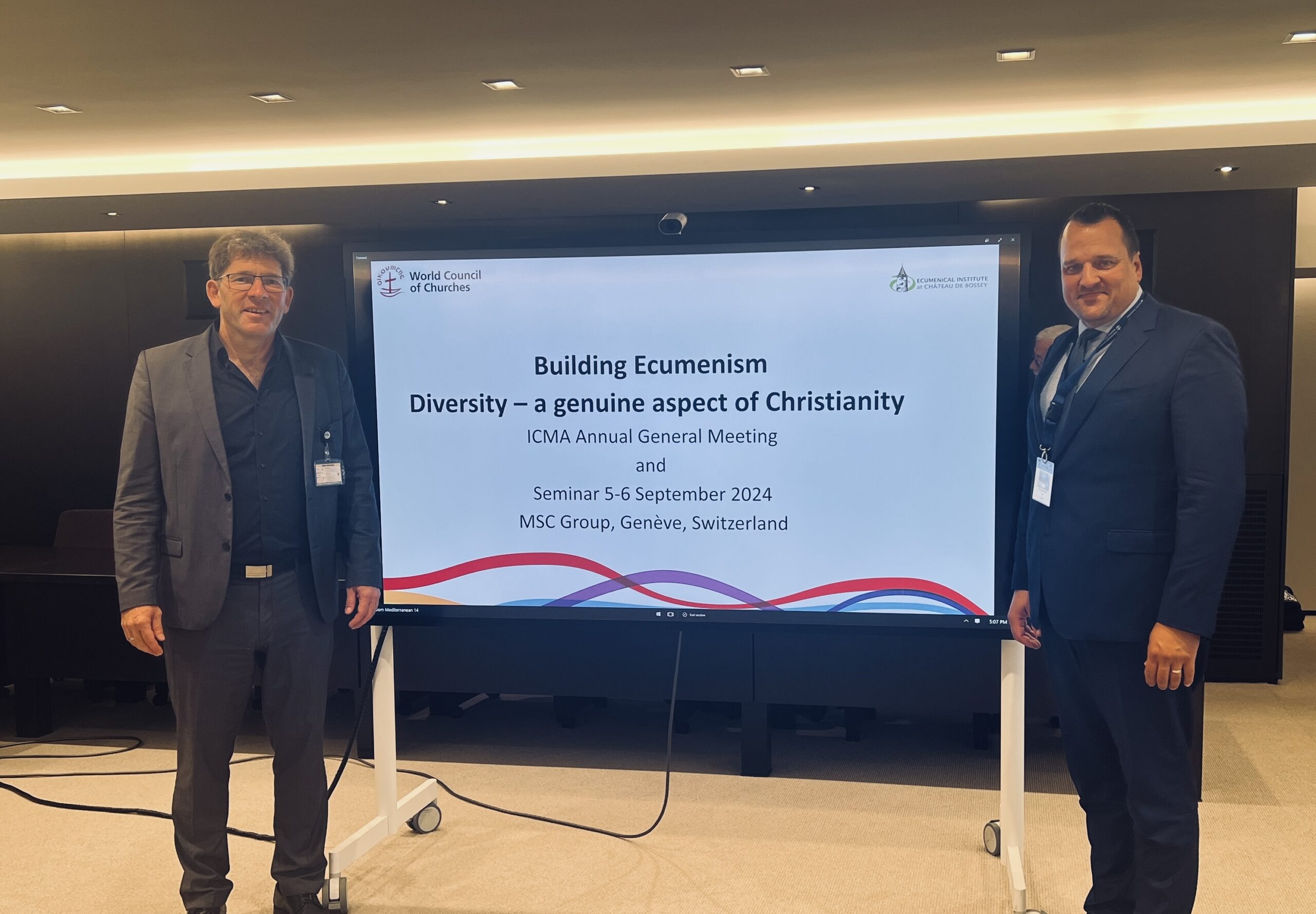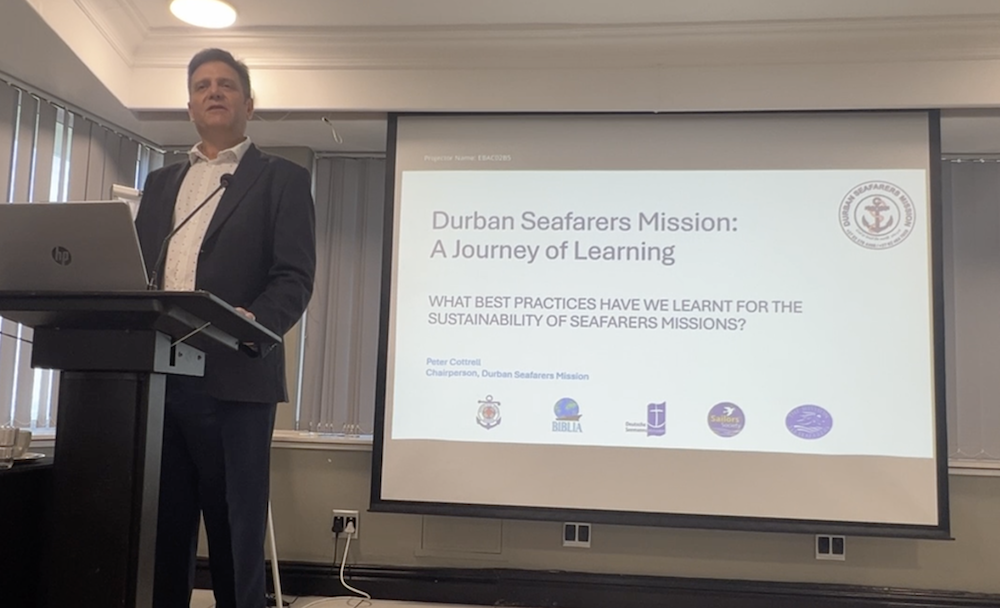ICMA is in conversation with Rev. Philip Edell, Chaplain and director of The Mission to Seafarers in Dunkirk, France about how to boost efforts at digital chaplaincy. Listen to the original conversation (link here) or read the interview here. (We have lightly edited for clarity).
Jason Zuidema: Welcome everyone. It’s great to see you all and be with you all on this call. I’m here today with Philip Edell who is chaplain and director at the mission to seafarers and Dunkirk, France. Welcome Philip to this conversation.
Philip Edell: Thank you, Jason it’s a great pleasure to be chatting with you today.
JZ: Before joining The Mission Philip spent more than 20 years in IT. So, in this period where many of you no doubt are thinking about how to kick-start your digital ministry to seafarers it’s great to have a real pro with us to have a conversation. We’re in this period when a lot of us are are thinking about how to do more digital ministry because of COVID-19. Most seafarer centres at this time are closing or closed and ship visiting is becoming difficult if not impossible in many places. So many are turning to digital tools. Yet it’s not necessarily self-evident in all cases. There’s so many different tools and so many ways of doing things but what should you do? What can you do? Some chaplains have been doing this for many years and so are sort of right away effective but there are others that haven’t done much of this. So, it’s great to have a meaningful conversation with Philip about how perhaps to kickstart to boost your seafarers conversations online. In this conversation, Philip, I’d love to get some sort of action points that chaplains and ship visitors can put into place right away, in the next week, to move forward on digital chaplaincy. Philip, as you think about digital chaplaincy, where would you start in the coming days?
PE: Well thanks very much for asking the question. The first thing I would want to advise everybody is just to keep it simple. Don’t try and reinvent the wheel here. You may well find that the first thing you should do is use your usual channels to contact the Port Authority, the port welfare committee, pilots, the shipping agents, all the people who you know in the port and let them know exactly what services you can provide in your local context. You might be using a Facebook group that you’re already networking with seafarers. It’s great to continue that. You may have other apps that you use you may still be able to go to gangplanks and give the all-important access to seafarers. So the first thing is put the message out there about what can you do.
JZ: It’s great to want to start digital ministry, but how do I get the internet into the hands of seafarers? What might you counsel ship visitors or others about how to get the internet still in the hands of seafarers who might not have it.
PE: Well, for example, I know that some chaplains have still the possibility to go up the gangway and to distribute SIM cards, so that’s obviously very great help to seafarers who maybe just come on a long voyage they’ve run out of data and they need to restock. We might find that there’s portside Wi-Fi in some lucky ports, though I know that’s often a bone of contention. And we might also find that there are increasingly some ships that offer a limited amount of data on a monthly basis to their seafarers. You’re not going to be able to use Facebook to stream a video with seafarers in that situation, but you’re certainly going to be able to send them text messages just to say how you’re doing to give them a bit of encouragement and to say that you’re thinking of them. And in the case of the mission you’re praying for them.
JZ: I want to just dwell on that just for just a moment. Sometimes perhaps ship visitors and chaplains think, I want to stream a digital church service or I want to send some big video or that sort of thing. Talk us through the small things like texting with seafarers. Why is that important and how would you suggest that could be useful in the coming few days?
PE: Yes, I mean texting is going to be useful because it uses very little data they’re just sending a few characters. So that’s going to be most useful when seafarers don’t have a lot of data. And generally if they don’t know if they have any data at all that’s going to be used to talk to their families to see image of their families. I think what we’re trying to do with our digital chaplaincy with our digital theology is just to remind the seafarers that they’re not alone. That they could still be isolated and feeling unhappy on the ship and in the same way that we could shake their hands and have a face-to-face contact, just having a little swap of text will give the seafarer to some degree a pastoral contact and make them feel a little bit valued in the way that we normally do when we go up the gangway and we do our ship visits.
JZ: Well some might say, “it’s all well and good to have this idea that you can email seafarers, but my seafarer center is closed and my ship visiting is done and I don’t have any new contacts.” Who am I supposed to talk to? What would you say in the cases where chaplains or ship visitors are thinking my ministry is closed, what can I do if my ministry is completely closed?
PE: It’s a really good point that. If they’re anything like me, most will have had over the last 12 to 24 months a lot of seafarers who’ve used various networks to contact us to say that they’re coming into port. Or perhaps they’ve said we’re coming in for a quick visit, could you be at the key side with a SIM card. So when I go back through my Facebook contacts, through my email contacts there are actually a huge number of seafarers who I’ve had some kind of contact with over the last two years. So the first point for actually building a list of seafarers is to perhaps check your contacts check your email. Check times have you sent an email to master @ dot dot dot because you had some business to do with the ship. So that’s it, look through your Facebook networks or your WeChat networks and have a look and every time there’s been a seafarer contact for the last couple of years pop those guys a message saying “Hi we’re here,” “we’re thinking of you,” “is there anything we can do to help you,” “is there anybody on your ship who would like to invite us to have a little contact with.”
JZ: The next challenge that I can think about is that the chaplin has all those contacts or the key person in the ministry has those contacts ,but is this something than just the one person does alone? The problem in many of these seafarers centers is that it’s not just the one person now without work it’s the whole team that doesn’t have anything to do. So how would you suggest that that a team could work on this digital chaplaincy? What would you do in the next few days to put something in place?
PE: To give you the example of what we’ve been doing in Dunkirk: I have three colleagues who one of whom speaks Tagalog and she’s from the Philippines another one of whom is Russian, so it’s been quite easy for me because I know they’re in France they’re locked up at home looking for things to do. So I pass on those contacts and they already have their own networks of seafarers that they’ve contacted in their own languages during the last few months. So they’re not only using those networks to extend the message that we’re kind of open for a digital chaplaincy and we may not be able to offer you the same kind of relaxation in our Center but we’ll certainly be able to offer you some kind of support and some kind of contact. So find out what your staff are up to. See if they’ve got any contacts and use that to leverage the communications network that you have. The other thing which is slightly separate, I am plugged into a church network. So to the priest and the Church closest to me I said that we’ve got a lot of seafarers now we’d like to talk to you. And she was very kindly able to put something in the newsletter that was emailed asking for volunteers. So that immediately that gave us two more people who are prepared to have a go and have a chat with seafarers. I think this could be really interesting not just for this immediate crisis, but there’s another way for tying congregations in to the work that we do on a daily basis. Some have suggested that perhaps as well this creates opportunity for us to broaden our vision.
JZ: Most of our work is with active seafarers. But what could we do perhaps also for seafarers in our own countries, in our own communities who might be retired or alone. Many places now there is self-isolation. We couldn’t physically go to visit them, so what sort of new means might you suggest to get in contact with them?
PE: Well, I certainly say from my own experience that I’ve been contacted by two retired seafarers who regularly visit the club they don’t have families. It’s how they feel connected with the seafarer community, in that family, that strong sense of belonging that they had when they were crewmen that sadly they feel less of when they become retired and stay at home. So those networks as well can be contacted. If they’re local perhaps a phone call is easier. If they are online, then they might be able to get involved in some kind of contact. Certainly we can text them and say how are you doing, we’re thinking of you, but we also might be able to involve them in some ongoing conversations with other seafarers another community. You hinted at the widows of seafarers, now these are in my port of Dunkirk. There are a number of ladies whose husbands were seafarers who perhaps aren’t able to do ship visiting anymore but have been very keen ship visitors 10-15 years ago and are now on their own. Anything we can do to reassure the community that we’re there for them as well I think is a great thing so I think that idea is really good.
JZ: Philip, thank you so much for these great ideas. I’m so glad that you’re available to use your experience both in the IT world and the pastoral world to talk to us about digital chaplaincy. It will be great to stay in touch. Thank you for your time. If anyone has any questions for either myself or for Philip I’m sure where we’d be happy to reach out to you in these using these new digital means in the coming weeks.
PE: Well, thank you Jason. It’s always a great pleasure to work with you and to support the wonderful work of ICMA. Thank you.





